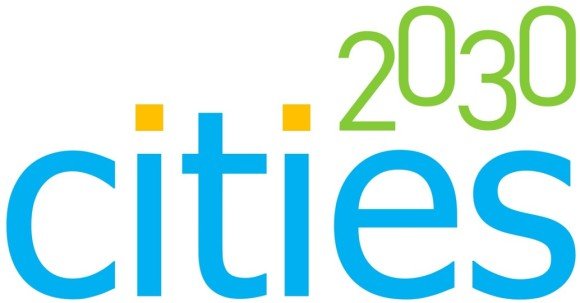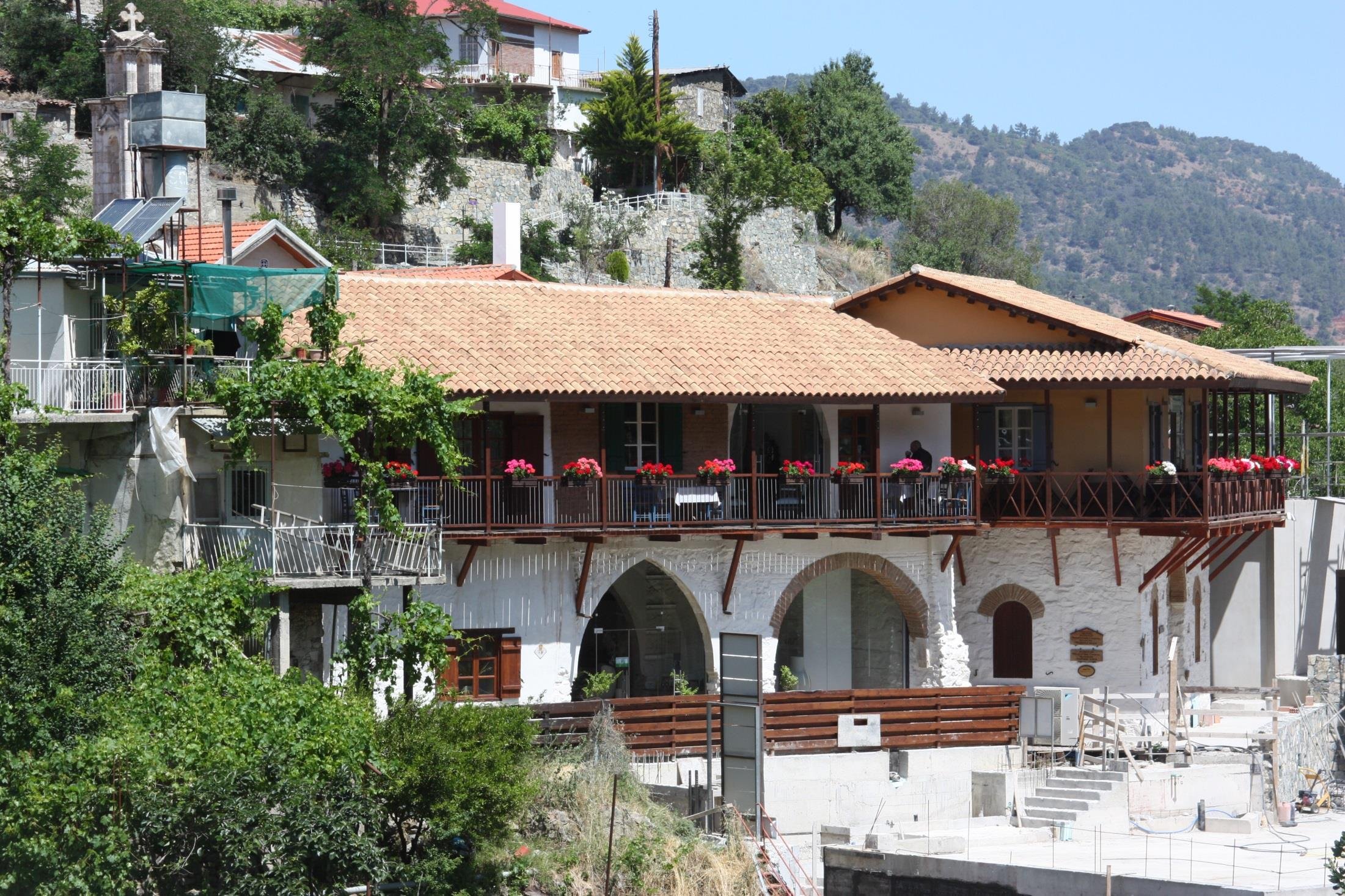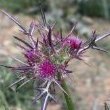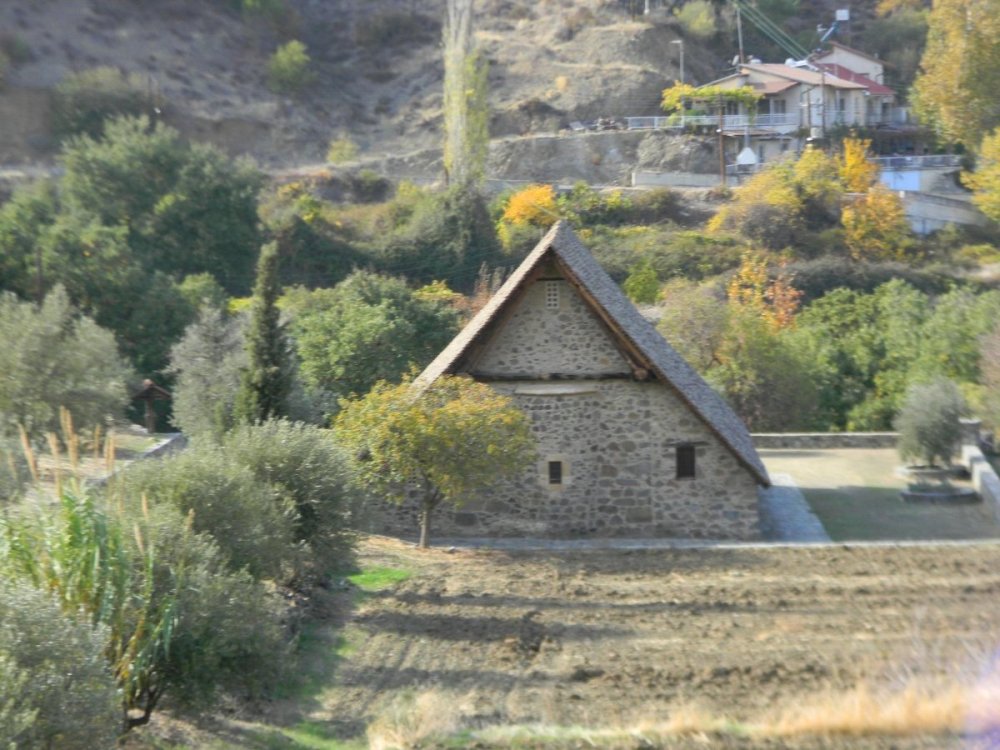Policy: Policy Action Plan
Introduction
The local partners are not actively involved in the local CRFS network in the sense that their core area of expertise lies in other areas namely education and research and local administration policy. What they bring to the table is a strong knowledge of the area its business, people and challenges. It is not about a prosperous, successful place. It is more about a place that is fighting for survival but has a lot to offer in terms of a healthy lifestyle and diet based on the Mediterranean diet.
The region of Troodos enjoys a unique traditional culture and lifestyle with distinct characteristics (climate, less polluted environment, local food, agriculture and processed agriculture products). Research has shown that people in the area live longer and lead healthier lives than people living in other parts of the island. So, the main focus of the research would be to explore what are the factors for this difference, focusing on diet and environmental factors. Very much like other rural and mountainous areas, in Troodos, since the establishment of the Republic of Cyprus in 1960, there was a 50% reduction in population. The Government among other initiatives has started some actions to promote the sustainable development (in a broad sphere of areas) in the Troodos region, in an effort to revert the migration of the population in the region.
Action Plan / Activities
Therefore, the objective of the Troodos lab is to explore the unique diet and lifestyle of the Troodos region and export good practices to the urban areas and
support the sustainable development and boost the economic environment and livelihood of the Troodos region.
This will be accomplished through a series of actions:
- Develop the story of Troodos as a case study taking into account economic and Social data as well as relevant production data for agricultural, dairy and animal Products.
- Along the same lines the distribution and market of these products will be explored in search for
- Identify producers with unique ideas on how to develop new agricultural and processed products and services,
- Identify and catalogue a list of festivals that have started in the area to promote
- Nutrition labs/camps (UNIC and CYDNA, City/Region)
- Natural Products (UNIC) - exploring the flora of the region for potential products with pharmacological application.
- Food and organic waste (UNIC and CyDNA, SME, City/Region) – food labs, environmental and eco-system services, promote and stimulate low carbon emissions
- Food labs (UNIC and SMEs) – exploring traditional Cyprus recipes and cuisine as part of a more of a healthy diet.
- Production, Processing, Manufacturing and Distribution (UNIC, City/Region) – workshops, training, short courses
- Food security and Nutrition (UNIC and CyDNA) – evaluation, workshops, training and short courses
- Livelihood and economic environment (UNIC, City/Region) – part of Living Policy - financial and other support for the different activities and actions that will be put forward at several levels (farm to plate)
- Exporting lifestyle and diet of the population (UNIC, CyDNA, SME, City/Region) – workshops, presentations, fairs
- Dissemination events that will promote good practices in Cyprus, Europe along with the relevant EU Policies.
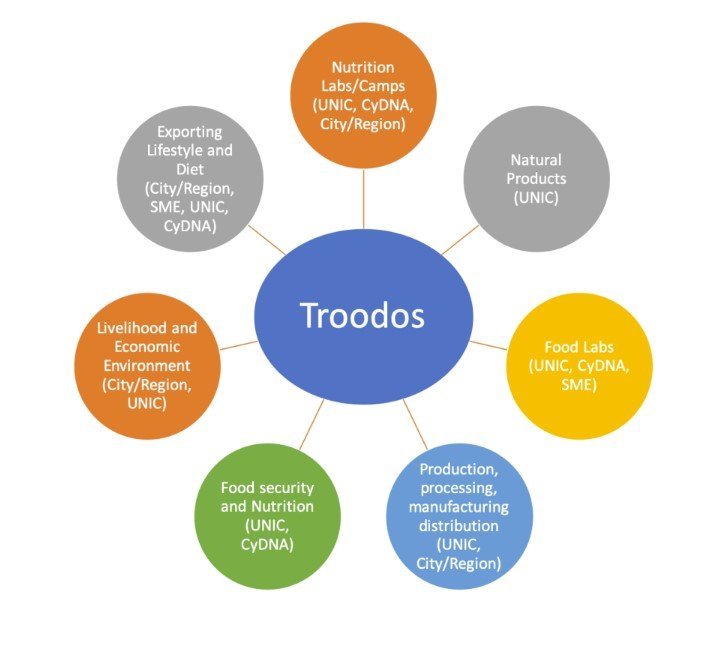
Good Practices – Work in Progress
So far, we have identified a number of good practices that stem out of our work at the University and we would like to share with the partnership. We have also identified a list of good practices in Cyprus as well as some innovative organizations and individuals, young people, who return to the Troodos region and try to make a living out of the land the way their parents and grandparents used to do.
The villages and villagers used to live a sustainable and self -sufficient way of life where almost all their needs and wants were satisfied within the confines of the village or community. They would throw nothing away and every wasted food would go into feeding their livestock or buried in the back yard to enrich the soil, the animal waste would be processed to produce manure and every single part of a slaughter animal would be used in useful way.
Of course, this way of life is no longer feasible but there are good practices that are still applicable today. We do know of restaurants, for example here and in Greece, that use only locally and seasonally produced raw materials for the dishes they have on menu.
Here below are some examples of our work so far.
Title: Healthy Eating Healthy Life
Description: The University of Nicosia through the Nutrition and Dietetics programmes, and in collaboration with the Cyprus Nutrition and Dietetics Association, Lidl and Christis Charalambides companies organizes a workshop on healthy eating. The activities include seminars about healthy foods, Mediterranean diet, exercise and is also supplemented with food demonstrations (preparation and tasting) for the local and regional products.
Impact on CRFS: Working together with nutrition experts, the local communities, food industry and retailers, the activities create an open channel with the communities providing information about nutritional values of local food, ways to prepare the food that will preserve the nutrients, how to better utilize local products, in addition to educational activities emphasizing the need to combine healthy eating with healthy habits for a healthy life.
Potential for transfer: The activity can be transferred to any region (urban or rural, countries) and should combine academics, professionals, local communities and (whenever possible) industry and retailers.
Thematic area: Healthy habits, healthy food, healthy life, local products
Location: Cyprus, different regions (rural and urban)
Title: NUTRICO
Description: The research NUTRICO investigates the relationship between diet (the Mediterranean diet), life habits and the neurological and cognitive
functions of individuals from the 5th decade and older. It has been approved by the Cyprus National Bioethics Committee. The research consists of an online
questionnaire that is completed by the individual on their health, eating habits, and their daily activities and recent health clinical results such as levels of
cholesterol, sugar levels etc . This is followed by an online evaluation of their cognitive function. The results are provided to the individual with a short analysis how they fair some suggestions on how they can improve their functions, diet and lifestyle.
Impact on CRFS: this research will further increase the knowledge on the correlation between the Mediterranean diet, daily activities and the cognitive
function, emphasizing the need for healthy eating.
Potential for transfer: Translated to different languages, the questionnaires can evaluate diet, daily activitie and cognition changes in the “aging” population.
Would require specialized professionals to provide support with recommendations and data analysis – dietitians, psychologists, statisticians.
Thematic area: diet, life habits, neurological function and cognition
Location: Cyprus, but can be expanded to any countries.
